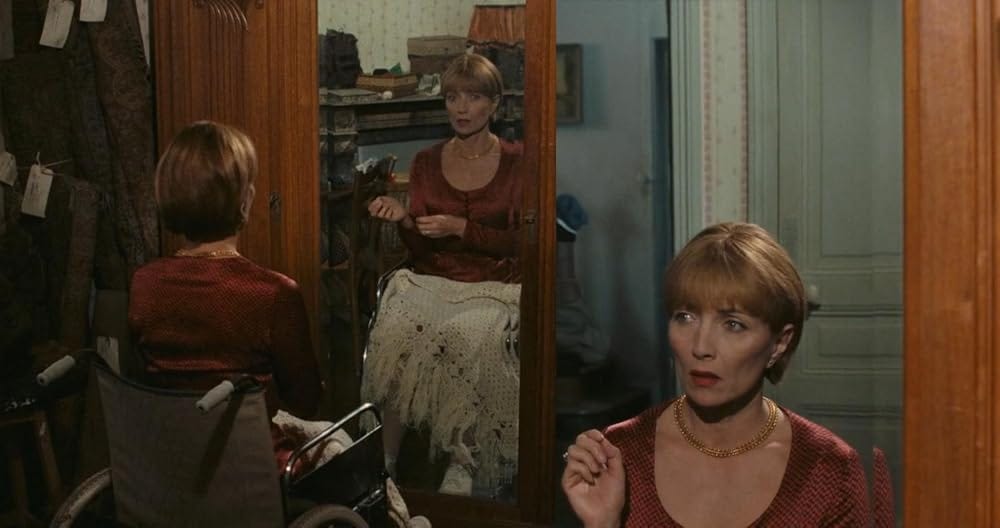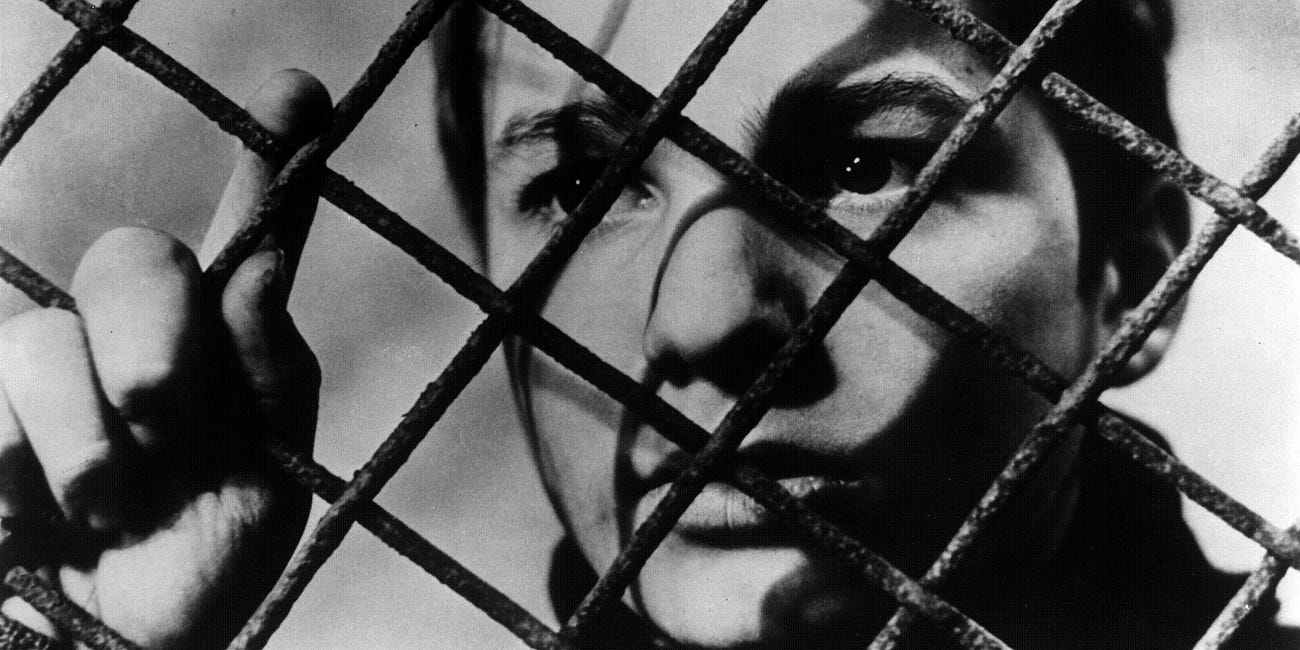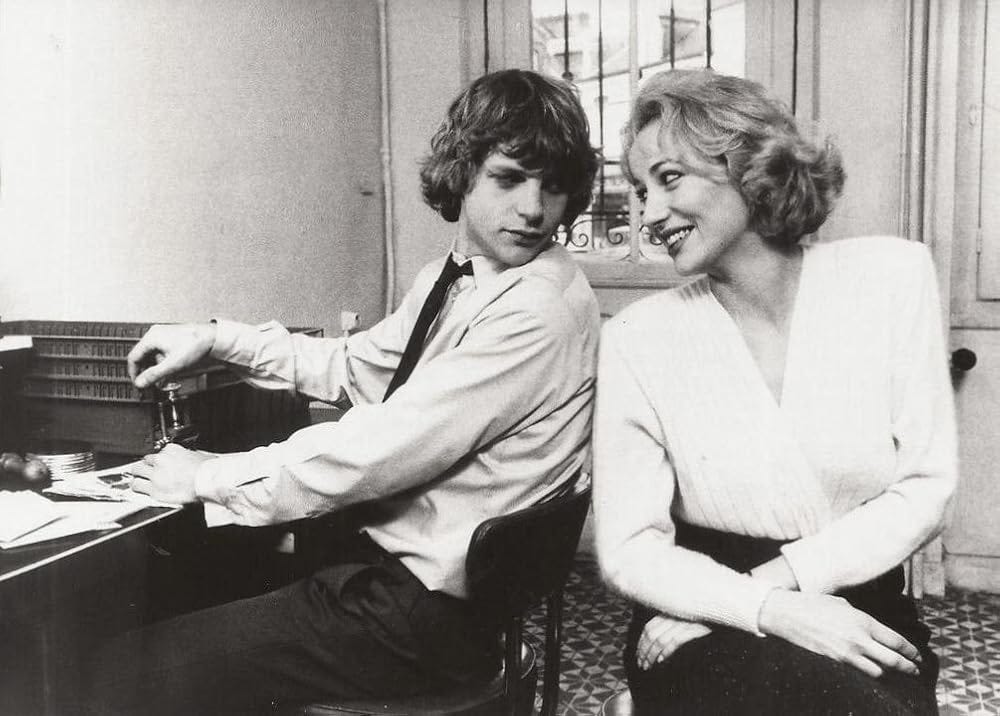Spoilers for Cop au Vin (1985)
This playful 1985 police procedural, co-written and directed by French New Wave filmmaker Claude Chabrol, never takes itself too seriously. The characters are often little more than stereotypes and its plot is often non-sensical. Even the original French title, Poulet au vinaigre, is a pun. Poulet translates to chicken but is also slang for a cop in French – a pun that is inelegantly Anglicised to Cop au Vin, a play on coq au vin.
The film focuses on Louis Cuno (Lucas Belvaux), a young postman who lives with his disabled and paranoid mother (Stéphane Audran) in their rundown house. The pair are harassed regularly by three of the town’s businessmen - the lawyer, Lavoisier (Michel Bouquet), the doctor, Morasseau (Jean Topart), and the butcher Filiol (Jean-Claude Bouillaud) – who plan to buy the building and renovate it.
Pushed by his mother and desperate to put an end to the bullying, Louis spends his evenings keying cars in an act of petty revenge. After a particularly bad encounter, he pours sugar into the fuel tank of Filiol’s car. A harmless prank that causes the car to stall as the butcher overtakes a lorry, leading to a fatal crash. This crash escalates the situation and draws the attention of Inspector Jean Lavardin (Jean Poiret).
Like so much of the film, Lavardin is a cliché. He’s mildly eccentric, makes wild jumps in logic to solve the case, and isn’t afraid to bully and torture suspects to get answers. His interest in the case only increases when Lavoisier’s mistress, Anna (Caroline Cellier), and Morasseau’s wife, Delphine (Josephine Chaplin) go missing.
The actual plot points that lead towards the conclusion aren’t really worth mentioning. Chabrol takes more pleasure in teasing his audience, moving these two-dimensional characters through entertaining situations. There are a few laughs to be had during the film, but the most interesting part is the development of Louis.
Louis is in a state of paused development, due to his mother’s fears that he will leave her. This stalls a burgeoning relationship with the post office clerk, Henriette (Pauline Lafont), who Chabrol seems to have stolen straight from Britain’s bawdy sex comedies that were popular a decade earlier. The childlike nature of Louis is obvious in the way he reacts to the harassment at the start of the film. He is unable to stand up to the bullies and instead plays childish pranks as if this would send a strong enough message to stop this trio.
SCENES FROM A MOVEMENT: THE FRENCH NEW WAVE
“It feels like a sense of freedom. Anything can happen at any moment. Narrative is completely fractured”
Throughout the film, we see him become more assertive. He takes a beating from Lavardin but will not admit to putting sugar in the fuel tank. His confidence is bolstered by a few dates with Henriette, and during one of these, they both mock the inspector.
It’s in the final scene that Louis finally grows up, at least in the context of this film. His sexual awakening is intrinsically linked to his maturity in Chabrol’s world. With police attention moving away from Louis, he goes to Henriette’s apartment and sleeps with her. While this is happening, his mother – believing that he has abandoned her – sets fire to the house. She makes a mistake though and during her escape, shows that she can walk and does not need to be confined to a wheelchair.
Louis runs to the house and shows his increased bravery by pushing past the emergency services to enter the house and attempt to rescue his mother. As she is carried out by paramedics, weak but ultimately unharmed, we focus on Louis’ face. He switches from concern to frustration to a gradual realisation. At the end of the road, Henriette appears and beckons him to her.
Before he can go to his lover, however, Lavardin grabs hold of him. The inspector explains that the case is solved and that Louis is no longer under any suspicion. This isn’t without a vague threat, though. Lavardin makes it clear that he knows Louis caused the butcher’s accident and kickstarted this chain of events. Keeping a firm grip on the postman, he says that he has decided to let the kid who put sugar in the tank go.
“But we can agree he was a brat, right?”
With this line, Louis is forced to acknowledge that he was childish. That his stupid prank has caused the death of one person and uncovered the deaths of two more. Louis nods, still scared of the inspector, and sheds that childish nature, brushing off the influence of his mother and running to Henriette.
It’s worth noting that the characterisations work with the original French pun as well. Poulet au vinaigre, literally chicken with vinegar, could describe Lavardin. He is a cop (poulet) but he is also, to put it crudely, full of piss and vinegar. Louis is on the other side of this. He is chicken at the start of the film, but becomes jaded and sharper by the end of the film.
Director: Claude Chabrol
Writer: Claude Chabrol, Dominique Roulet
Starring: Jean Poiret, Stéphane Audran, Michel Bouquet, Jean Topart, Lucas Belvaux, Pauline Lafont, Jean-Claude Bouillaud










